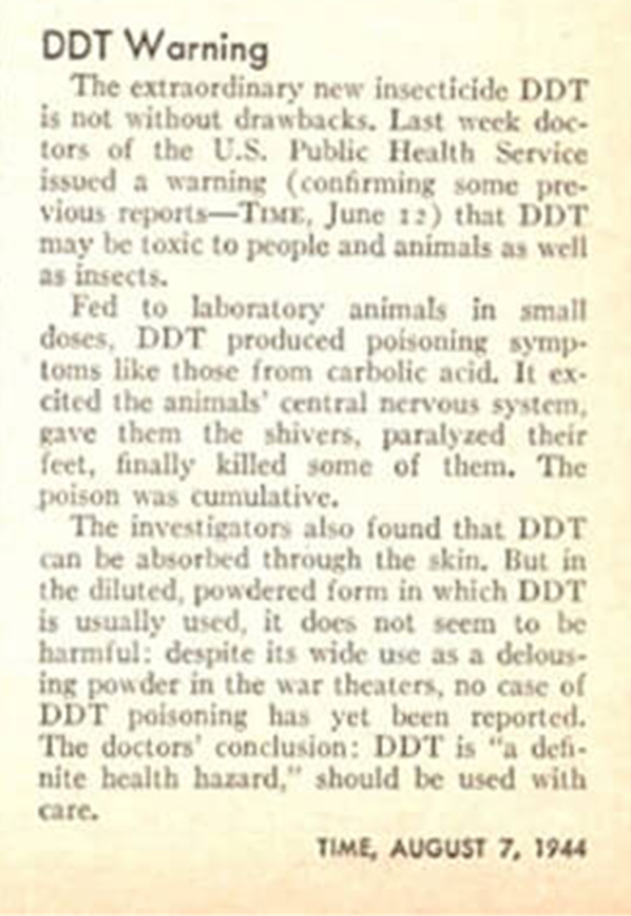
Conis, Elena, et al. “DDT Disbelievers: Health and the New Economic Poisons in Georgia after World War II.”

“RACHEL CARSON'S SILENT SPRING, A BOOK THAT CHANGED THE WORLD.” Silent Spring - Exhibition Overview | Environment & Society Portal

Conis, Elena, et al. “DDT Disbelievers: Health and the New Economic Poisons in Georgia after World War II.”
Silent Spring hit the news, raising awareness about pesticides and the danger they pose. Carson acknowledged the benefits of using pesticides, like increased crop production and the eradication of certain diseases, but she saw the consequences as too risky. Chemical companies tried to debunk Carson and her science, however, even Carson knew that Silent Spring was not as much a work of science as it was a work of science communication. Just like her previous books, it quickly became a bestseller. Carson was considered a social revolutionary, challenging the benevolence of corporations and the authenticity of science.

Gale Ambassadors. “The Roots of ‘Ecocriticism’: Exploring the Impact of Rachel Carson’s ‘Silent Spring.’”
Following the uproar over Carson’s book, CBS did a special on Silent Spring. Just before the show aired, CBS was flooded with letters urging fairness, lobbied mostly by the chemical industry. Three of five sponsors for the show quit. On April 3rd, 1963, the show aired anyway. With an estimated audience of 10-15 million, this was almost a second publication of the book. It was easily seen that for every scientific certainty, there was a host of unanswered questions. This publicity thrust the environment to the top of the political agenda, spurring a congressional review of environmental hazards, including pesticides. Carson appeared before this congressional committee to make her official statement. Eventually, pesticides were deemed to be unsafe.
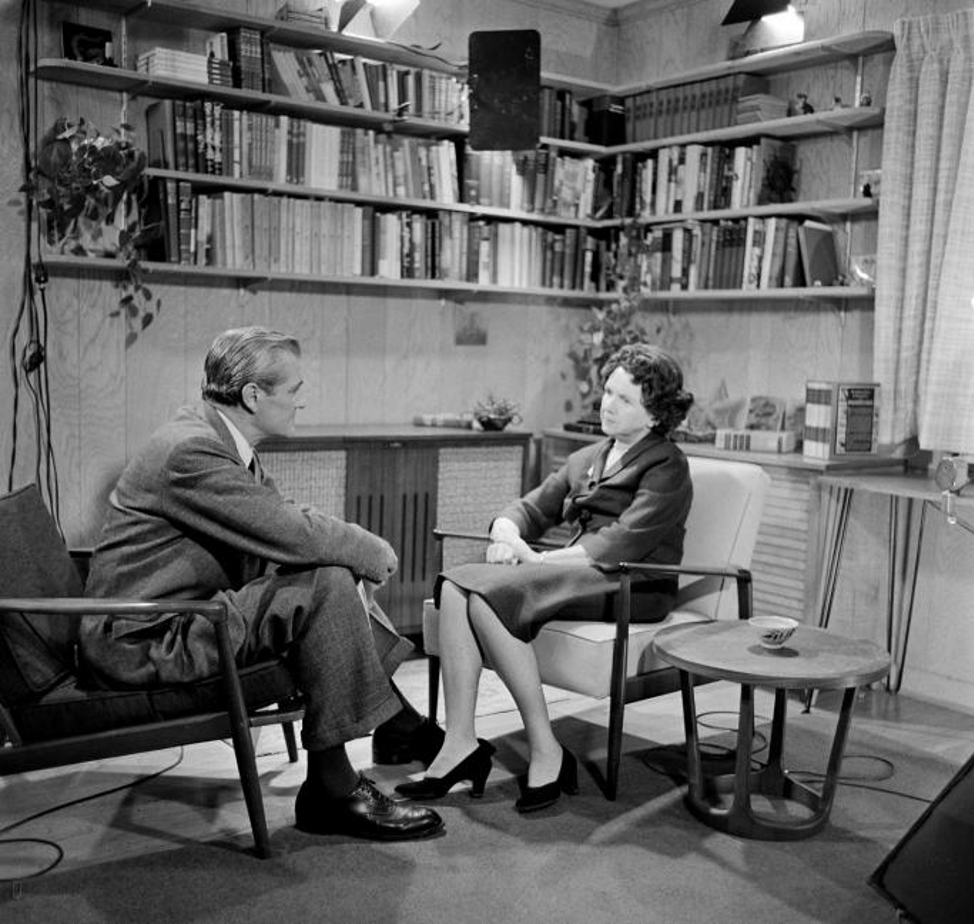
Carson interviewing for the CBS special.
“RACHEL CARSON'S SILENT SPRING, A BOOK THAT CHANGED THE WORLD.” Silent Spring on Television | Environment & Society Portal
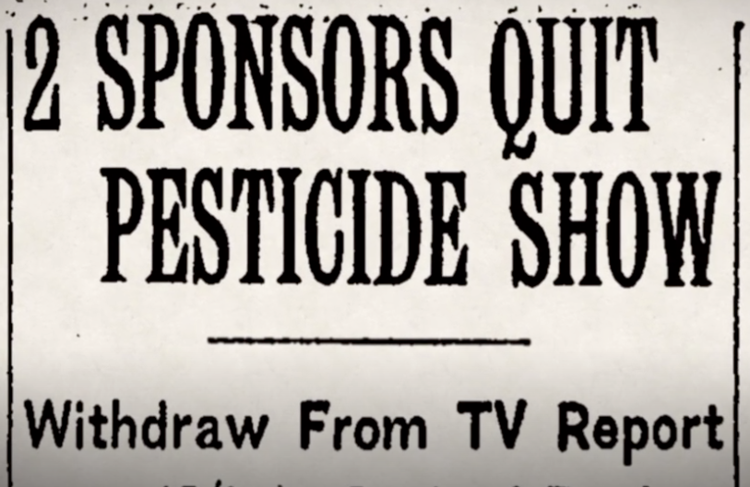
PBS, Public Broadcasting Service

The title page for the CBS special.
PBS, Public Broadcasting Service
Video clip from the CBS special on Silent Spring.
Samsonov, Anna. YouTube
"Chemical Warfare"
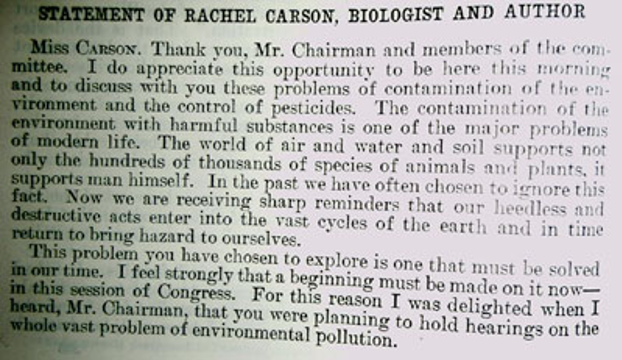
Rachel Carson's statement to Congress.
“Learning to Do Historical Research: Sources Government Documents.” Government Documents - Learning Historical Research

“Photograph of Rachel Carson Testifying before Congress, 1963.” Photograph of Rachel Carson Testifying before Congress, 1963 | Environment & Society Portal,

“Ms. Carson is concerned with every possibility of hazard and danger, whereas the agricultural school has to concern itself with the probability, the likelihood of danger, and assess that against utility. If we had to investigate every possibility, we would never make any advances at all because this would require an infinite amount of time for experimental work and we would never be finished.”
~Spokesperson for the chemical industry in the CBS special on Silent Spring, Dr. Robert White Stevens.
PBS, Public Broadcasting Service
When Silent Spring was published, chemical companies and the government were outraged. They saw themselves doing something for the higher good, seeing Carson as hysterical and too irrational to make a logical argument. They tried to discredit Carson in order to defend themselves. One chemical company threw out a twist on Silent Spring’s opening paragraphs, in which a pesticide-free world is riddled with famine and disease.
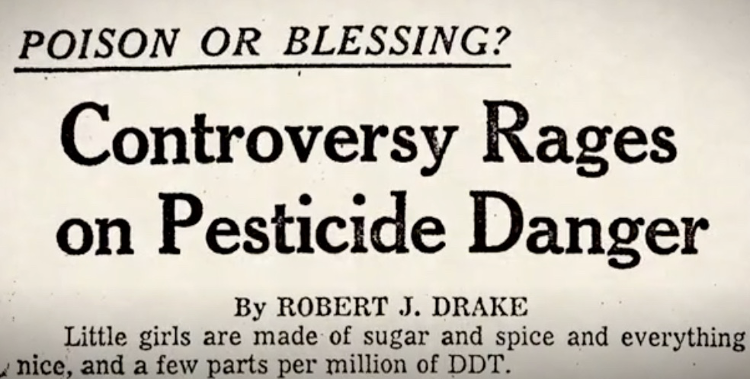
PBS, Public Broadcasting Service
Many chemists, all male, were extremely skeptical of the fact that a woman knew something they did not. Carson was accused of being unrealistic and wanting to ban all pesticides. She sent out a rebuke to these accusations and backed up her claim with the mounting evidence against DDT. When the CBS special aired, viewers (and the chemical industry) could see that Carson was calm and rational, not frothing at the mouth or a raving communist like the chemical industry made her out to be.
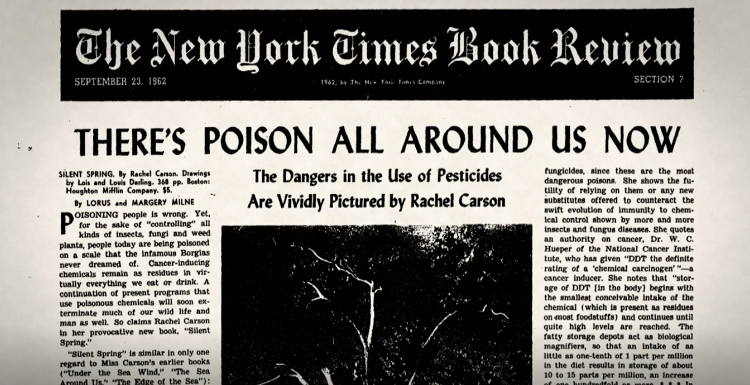
PBS, Public Broadcasting Service